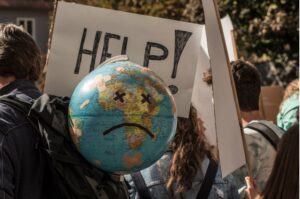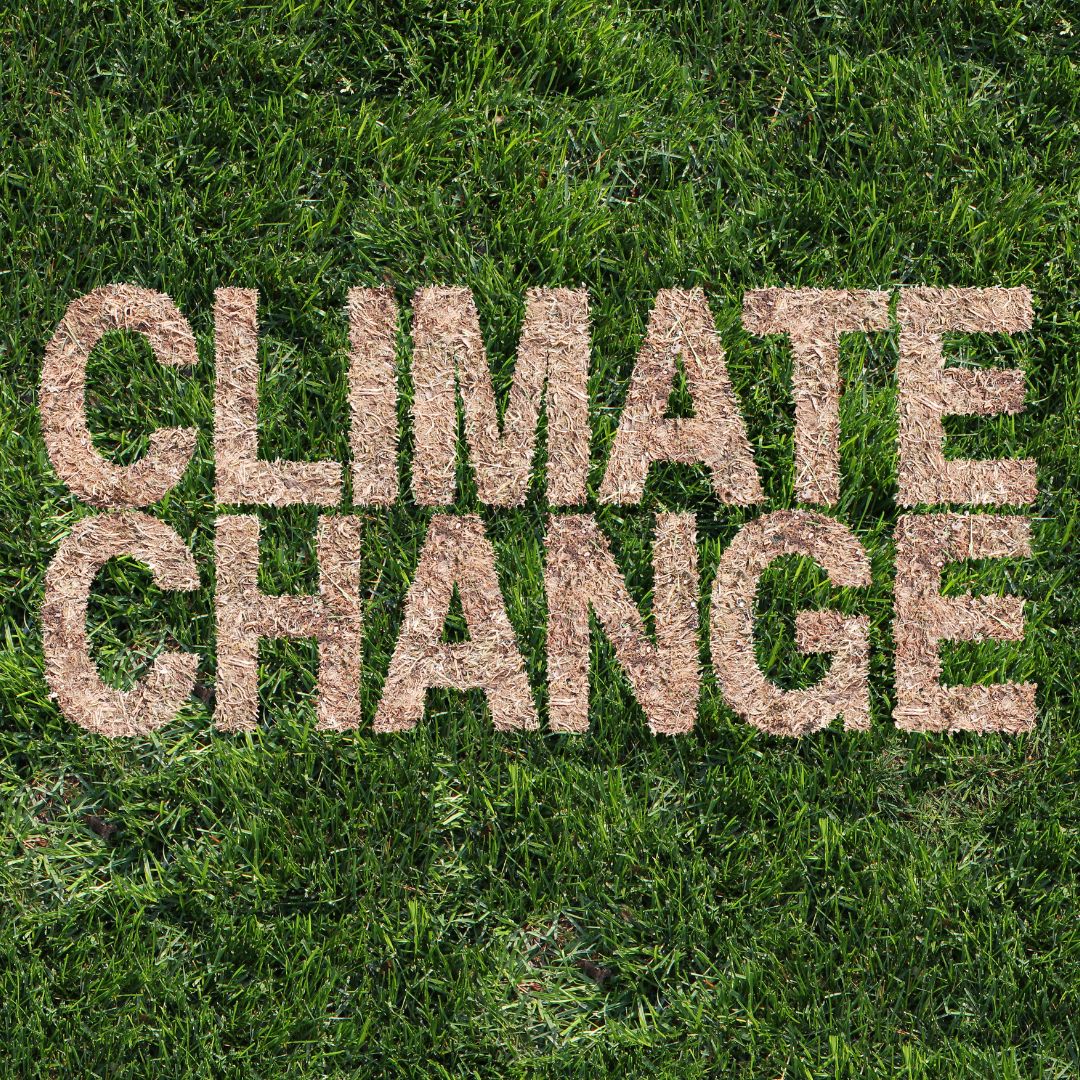-
Climate change is one of the most pressing challenges facing our world today.
-
From rising global temperatures and melting glaciers to unpredictable weather patterns and natural disasters, its impacts are felt everywhere.
-
In the midst of this global crisis, young people have emerged as powerful voices for environmental protection.
At University of Rawalpindi (UOR), students have a unique opportunity to not only understand the science behind climate change but also to play an active role in mitigating its effects. This Earth Day, even without formal celebrations, we can reflect on the vital role youth play in shaping a sustainable future.
Understanding Climate Change
 Climate change refers to long-term shifts in temperatures and weather patterns, primarily caused by human activities such as burning fossil fuels, deforestation, and industrial processes. These activities increase the concentration of greenhouse gases in the atmosphere, trapping heat and disrupting the Earth’s climate system. According to the Intergovernmental Panel on Climate Change (IPCC), urgent action is needed to limit global warming to 1.5°C to avoid catastrophic consequences.
Climate change refers to long-term shifts in temperatures and weather patterns, primarily caused by human activities such as burning fossil fuels, deforestation, and industrial processes. These activities increase the concentration of greenhouse gases in the atmosphere, trapping heat and disrupting the Earth’s climate system. According to the Intergovernmental Panel on Climate Change (IPCC), urgent action is needed to limit global warming to 1.5°C to avoid catastrophic consequences.
Why Youth Engagement Matters
 Youth represent over half of the global population. The world is considered as a home to 1.8 billion people their ages ranges from 10-24 years. Young people know the challenges that climate pose they are also aware of the opportunity to achieve sustainable development through bringing rapid solutions to climate change. Their actions, decisions, and attitudes today will shape the environmental future of tomorrow. Young people bring energy, creativity, and a fresh perspective to the climate conversation. More importantly, they have a personal stake in the outcome. Climate change affects access to clean water, food security, health, and even economic stability issues that directly impact the youth of today and the generations to come.
Youth represent over half of the global population. The world is considered as a home to 1.8 billion people their ages ranges from 10-24 years. Young people know the challenges that climate pose they are also aware of the opportunity to achieve sustainable development through bringing rapid solutions to climate change. Their actions, decisions, and attitudes today will shape the environmental future of tomorrow. Young people bring energy, creativity, and a fresh perspective to the climate conversation. More importantly, they have a personal stake in the outcome. Climate change affects access to clean water, food security, health, and even economic stability issues that directly impact the youth of today and the generations to come.
The Role of Students in Climate Action
 Students at universities like University of Rawalpindi can play a critical role in raising awareness and driving change, even in small ways. youngsters can contribute more to the safety and preservation of the nature. Young people are trying and putting in their efforts to increase and take climate action. Here are several key areas where student involvement makes a difference.
Students at universities like University of Rawalpindi can play a critical role in raising awareness and driving change, even in small ways. youngsters can contribute more to the safety and preservation of the nature. Young people are trying and putting in their efforts to increase and take climate action. Here are several key areas where student involvement makes a difference.
My generation has largely failed until now to preserve both justice in the world and to preserve the planet. It is your generation that must make us be accountable to make sure that we don’t betray the future of humankind – United Nations Secretary-General, António Guterres
-
Awareness and Advocacy
University students can become climate advocates by organizing awareness campaigns, seminars, or even writing blogs and articles. Sharing facts about global warming, pollution, and the importance of eco-friendly habits can spark conversations within the university and beyond.
-
Sustainable Lifestyle Choices
Adopting eco-conscious habits such as reducing single-use plastic, conserving energy, using public transport, and supporting sustainable products can significantly reduce one’s carbon footprint. These small changes, when adopted by many, contribute to a larger impact.
-
Green Initiatives on Campus
While University of Rawalpindi is still developing its infrastructure, students can initiate or suggest green projects such as tree plantations, waste segregation, or water-saving campaigns. These actions not only benefit the campus environ00ment but also set an example for others.
-
Research and Innovation
Students in disciplines such as computer science, engineering, or environmental studies can explore innovative solutions for energy efficiency, pollution control, and climate resilience. Encouraging final year projects or startups that tackle environmental issues can lead to meaningful contributions.
-
Volunteerism and Community Engagement
Collaborating with local NGOs or participating in community clean-up drives, environmental education programs, and awareness walks can connect students with real-world efforts beyond the campus.
Global Movements Led by Youth
In recent years, youth-led climate movements have gained global recognition. Figures like Greta Thunberg have shown how one voice can mobilize millions. Movements such as Fridays for Future and Extinction Rebellion have brought climate change to the forefront of political and media discussions. Students in Pakistan can draw inspiration from these examples and initiate local chapters or similar activities adapted to their community context.
Climate Change and Pakistan: A Local Perspective
Pakistan is among the top 10 countries most affected by climate change, despite contributing less than 1% to global greenhouse gas emissions. From extreme heatwaves to floods and glacier melt in the northern regions, the impacts are already visible. This makes it even more crucial for Pakistani youth to stay informed and involved. University of Rawalpindi can serve as hubs for climate education and action.
University of Rawalpindi’s Role
While University of Rawalpindi is a new institution, it has the potential to shape environmentally aware graduates. Integrating sustainability into academic curricula, encouraging faculty-led research on environmental topics, and supporting student-led green initiatives can create a ripple effect. Even simple steps like reducing paper usage on campus or installing energy-efficient lighting can make a difference.
Final Thoughts: The Power of One
Protecting the planet might seem like a massive challenge, but every action counts. Whether it’s speaking up in a classroom discussion, planting a tree, or reducing electricity usage, students can lead by example. Change often begins with one person and that one person could be you. It is often said that: “By changing yourself you can change the whole world”
Conclusion
Climate change is not a distant threat it is a current reality that needs attention, especially from the youth. At University of Rawalpindi, students are not just learners, they are leaders and change-makers. Earth Day serves as a reminder that our planet’s future is in our hands. With commitment, awareness, and collective action, UOR students can help build a cleaner, safer, and more sustainable world.










